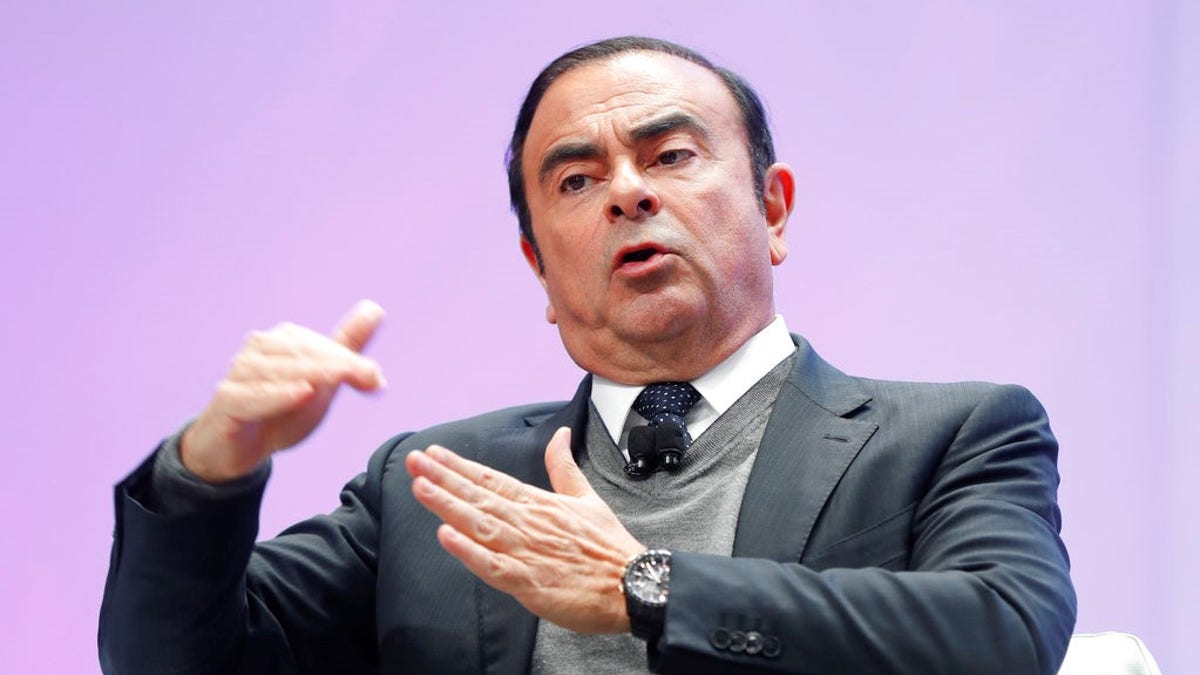
(AP)
Nissan Motor Co. chairman Carlos Ghosn will be detained for another 10 days following his arrest on suspicion of falsifying income reports by millions of dollars and misusing company assets for personal gain, Japanese media reported Wednesday.
The board of Nissan Motor Co. is set to decide this week whether to dismiss Ghosn and the company's representative director Greg Kelly, who was also arrested Monday on suspicion of collaborating in the wrongdoing.
Their detention was extended Wednesday for another 10 days, Kyodo News service reported. The Tokyo District Court, cited in the report, declined to comment.
Under Japanese law, suspects can be held for 20 days per possible charge without getting an official indictment. Additional charges can be tagged on, resulting in longer detentions. Neither Ghosn nor Kelly has been charged so far.
Ghosn is being suspected of falsifying securities statements and underreporting $44.6 million in income from 2011 to 2015, and Kelly was suspected of collaborating with him, according to Tokyo prosecutors.
The maximum penalty, upon conviction for violating the financial laws, the suspected allegation, is 10 years in prison, a 10 million yen ($89,000) fine, or both.
Despite the high-profile arrests, analysts said the impact on Nissan auto sales was expected to be minimal.
"I'd be surprised if it impacts car sales very much," said Christopher Richter, auto analyst for CLSA Securities Japan Co. "Consumers are discerning enough to say: This car, the wheels might fall off so I'm not going to buy it. This car company, the executive might have done something kind of dodgy, but do I like the car or not."
Richter noted sales dips that hit after previous Nissan scandals had been temporary. The deviations the automaker acknowledged in those scandals were more directly related to product quality, such as mileage, emissions and plant inspections.
Whatever executives might, or might not, have been doing were apt to influence a car purchase less, Richter said.
Renault SA of France, a partner since the late 1990s, now with a 43 percent stake in Nissan, retained Ghosn as chief executive in an emergency board meeting Tuesday, while naming an interim in his place. Renault's board also is requesting Nissan pass along details of its investigation.
From the start, Nissan has sought to distance itself from the arrests.
Chief Executive Hiroto Saikawa denounced Ghosn and Kelly as "the masterminds," and made clear he thought they should be removed at Thursday's board meeting.
Ghosn, 64, was sent in to Nissan by Renault in 1999, and served as Nissan's chief executive from 2001 until last year. He became chief executive of Renault in 2005, leading the two major automakers simultaneously. In 2016, he became Mitsubishi Motors' chairman.
Ghosn is credited for turning around Nissan from near-bankruptcy.
Kelly, 62, joined Nissan in the U.S. in 1988, and became a board member from 2012. His background over the years has been in human resources and alliance management. He has a law degree from Loyola University School of Law and a bachelor's degree in public administration from Augustana College.
When Saikawa was asked how such actions could have gone undetected for five years, perhaps longer, he blamed a murky system of checks and balances at Nissan and stressed that power had been too focused with Ghosn.
Nissan's overall performance won't be hurt by the absence of Ghosn, "as long as the executive team pulls together," said Janet Lewis, an analyst at Macquarie Research.
The fact the case was initially brought to attention by a whistleblower underlined how the system was working, she said.
Nissan shares tanked Tuesday after the scandal surfaced, falling more than 5 percent. The stock recovered moderately in Wednesday's trading on the Tokyo Stock Exchange, closing up 0.4 percent.
Masahiro Akita, auto analyst with Credit Suisse, said he was stunned by the news of Ghosn's arrest.
But he believes much of the operations at Nissan will remain business as usual, while uncertainties about brand image remain.
"It's not realistic to think the alliance will suddenly change as it is now already operating," he said, noting the automakers share platforms, or the basic parts on which vehicles are built, as well as parts purchasing.
"You can't go back on it that easily."